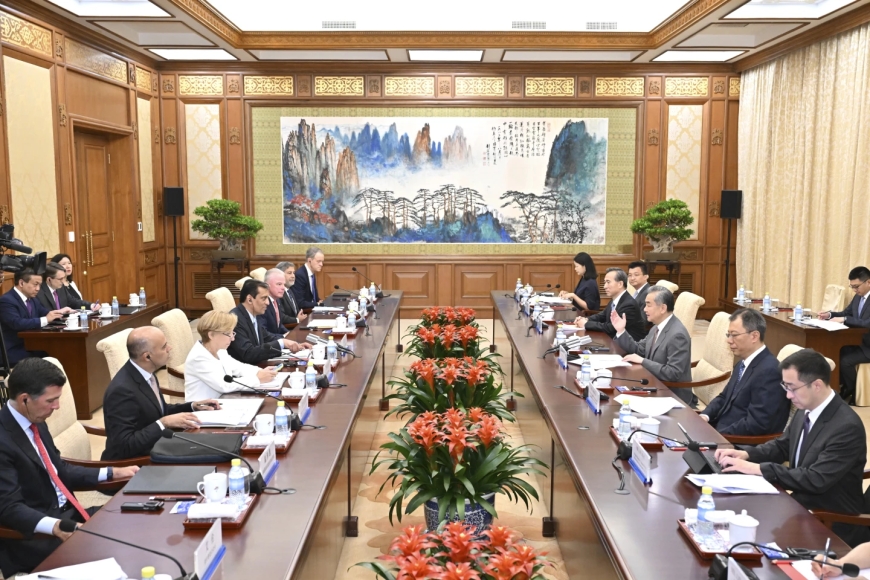Chinese officials have issued a stark warning to a delegation of top U.S. business leaders visiting Beijing this week, emphasizing that higher tariffs on imports from China will adversely impact their operations within the country. This delegation, comprising influential members of the U.S.-China Business Council, including the CEOs of FedEx and Micron, followed a top-level meeting last week where the Chinese Communist Party leaders endorsed policies aimed at enhancing the business environment for foreign investors, while also tightening the protection of state secrets.
The discussions occur against a backdrop of escalating economic and national security concerns. Both the U.S. and China have imposed trade and investment restrictions, citing national security. These measures have placed American businesses in a precarious position, facing intense scrutiny of their China operations by authorities. Beijing has vehemently opposed Washington’s increased tariffs on Chinese goods and restrictions on China’s access to advanced technologies, such as AI and computer chips.
Diplomatic Efforts and Business Concerns
President Joe Biden's administration has made efforts to mend ties with China, including several meetings between Biden and Chinese President Xi Jinping. However, Biden has maintained many of the sanctions introduced by former President Donald Trump, who imposed punitive tariffs on China.
In a meeting with the business delegation, Chinese Commerce Minister Wang Wentao underscored that U.S. investment restrictions on China would significantly impact American companies operating in China. The U.S.-China Business Council, a nonpartisan group representing over 270 American companies engaged in China, organized the visit to Beijing. The council aims to advance economic priorities and facilitate dialogue between U.S. and Chinese leaders.
Statements from Leaders
“We appreciate the opportunity to engage with Chinese leaders to promote commercial relations and advocate our priorities for the benefit of our companies and employees,” said Raj Subramaniam, chairman of the council and CEO of FedEx.
Craig Allen, the council’s president, expressed the group's desire to create a more stable, fair, and predictable business environment in China, addressing both longstanding and new market barriers. Other notable attendees included Brendan Nelson, president of Boeing Global, Amit Sevak, president and CEO of Educational Testing Service, and Roberta Lipson, CEO of Chindex International.
China's Position and Future Plans
Chinese Foreign Minister Wang Yi encouraged the U.S. business leaders to use their influence to provide an accurate picture of China and advocate for a balanced understanding of the country. He highlighted the recent Communist Party meetings, which endorsed over 300 reform measures aligned with Xi Jinping’s vision of strengthening China’s economic power and technological leadership. These measures include pledges to foster a first-rate business environment, remove market restrictions, and promote trade while expanding the party's role in business and enhancing national security safeguards.
New Regulations and Business Uncertainty
A new decree was approved to implement a revised state secrets law, effective September 1, which intensifies screening of personnel working with state secrets and restricts their travel. Foreign business groups have raised concerns about the increasing regulations and uncertainty regarding the boundaries of state secrets laws. Sean Stein of the American Chamber of Commerce in China highlighted the challenges businesses face in ensuring compliance without clear guidelines.
“Companies don’t want to endanger China’s national security, but they need to know if they’re making an investment, who they’re investing with,” Stein said, noting that the lack of clarity poses significant risks for businesses operating in China.
As the first U.S. business group to visit Beijing following the Communist Party's recent planning meetings, the delegation's visit signifies an effort to navigate the complex landscape of U.S.-China economic relations. Both sides have expressed a desire to promote peace and stability, but significant challenges remain in balancing economic interests with national security concerns. The ongoing dialogue and engagement between business leaders and government officials will be crucial in shaping the future of U.S.-China relations.














































